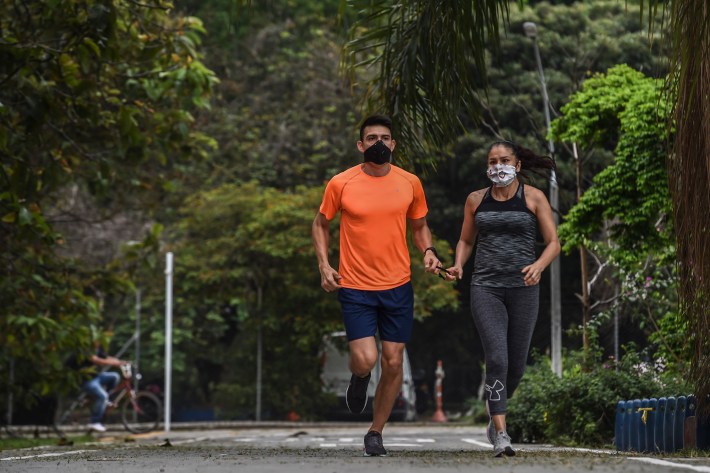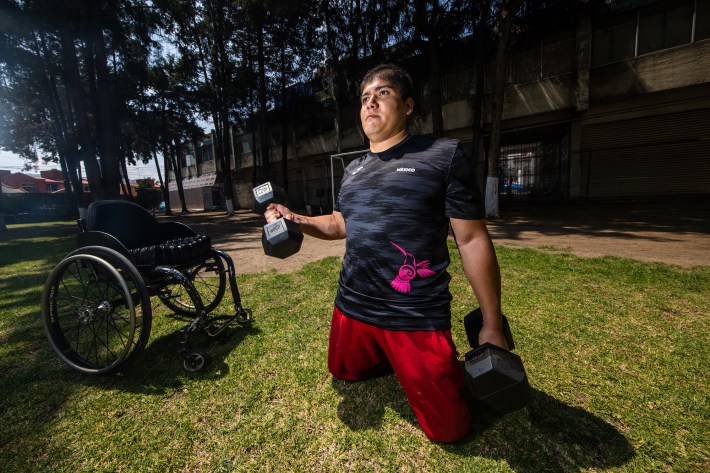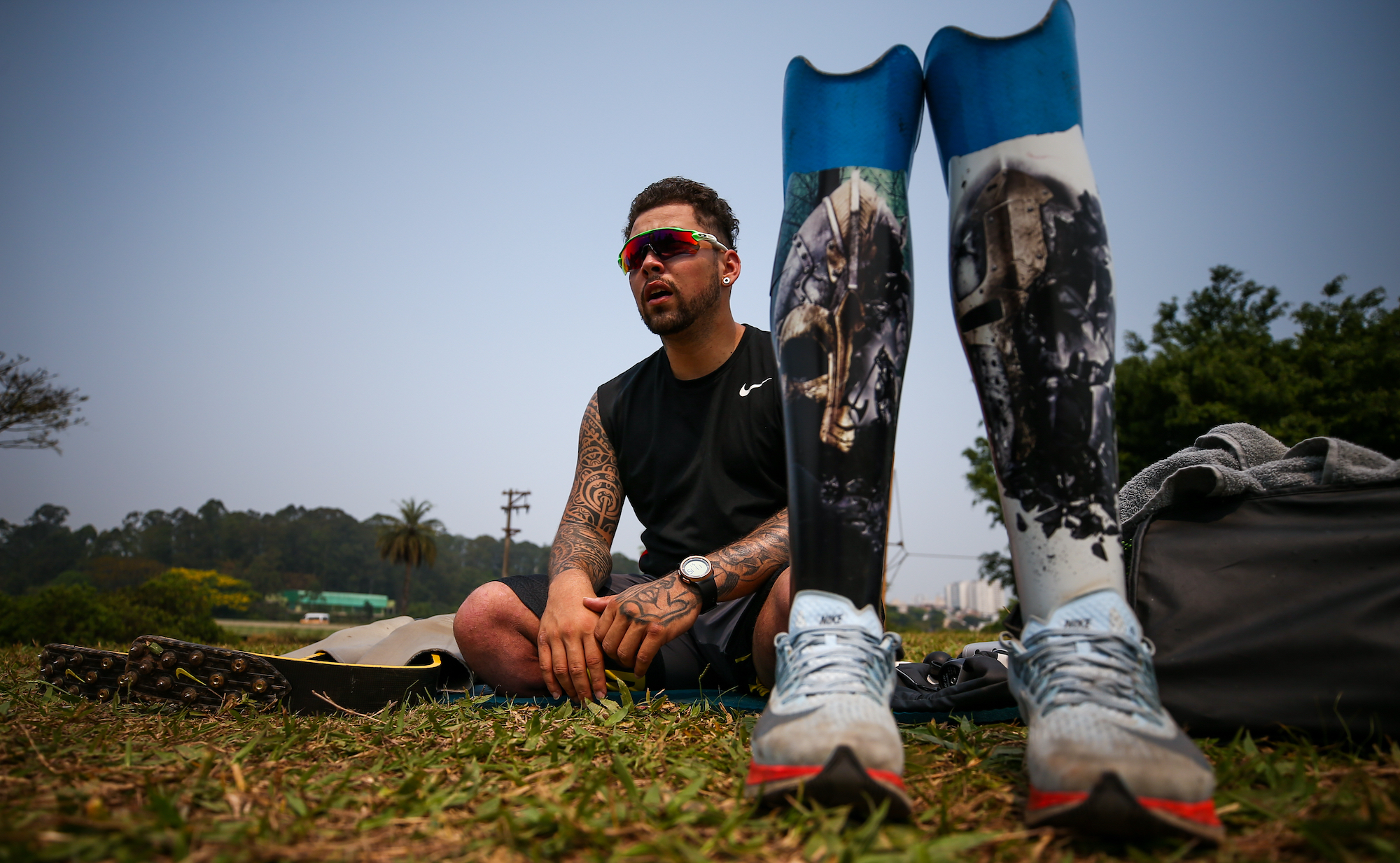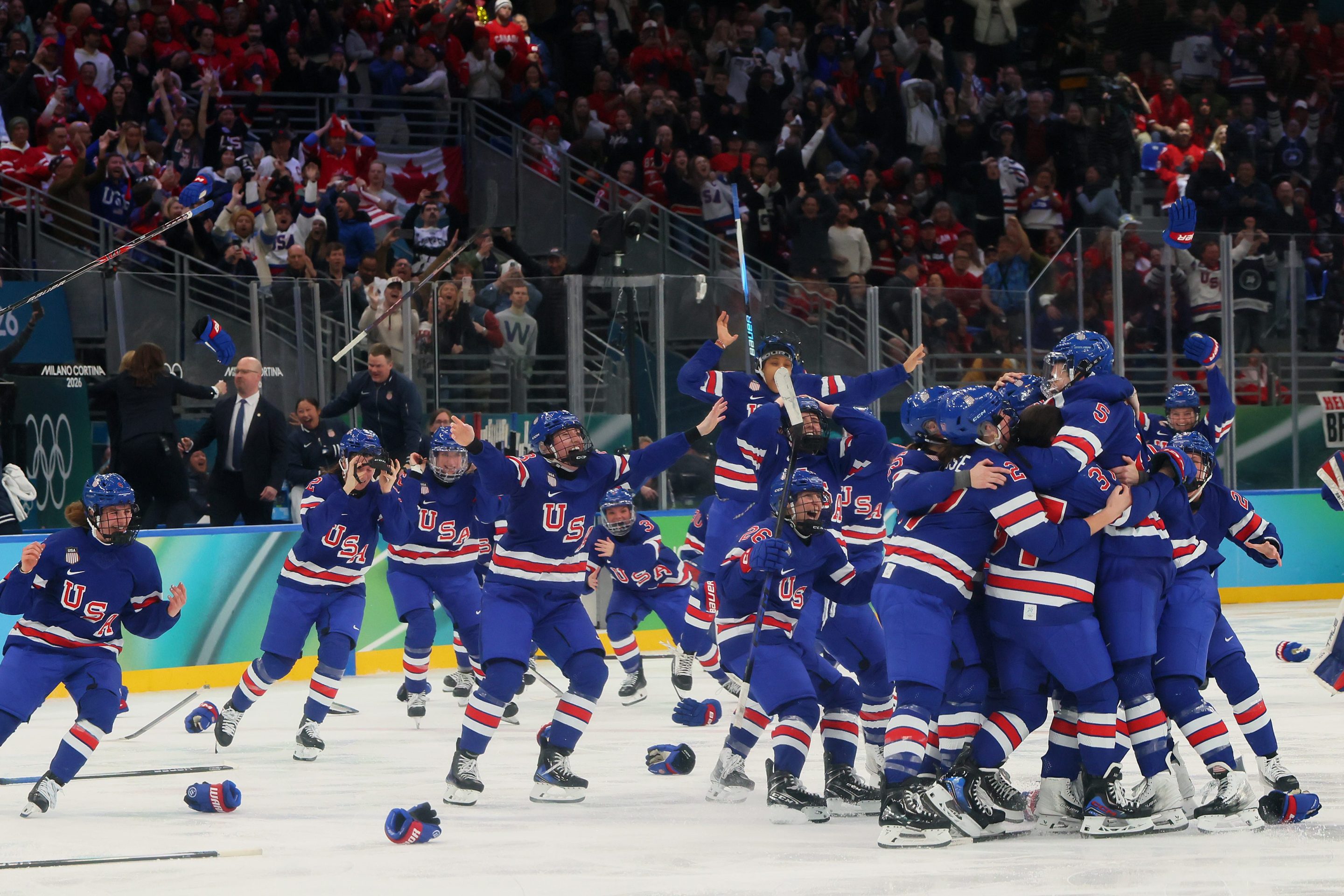The sports world has not merely been shifted by COVID-19, but set alight, kicked, yelled at, thrown about some more, and then been disregarded in a corner to focus on improving itself. This has been true of the usual suspects—the NBA, NHL, MLB, and NFL have all floundered through returns to action in their own ways—but the pandemic has been particularly devastating and confusing for disabled athletes.
Amidst longtime International Olympic Committee bigwig Dick Pound proclaiming that Olympic athletes should get their vaccinations first, an idea quickly shot down by Canadian athletes, para-sport has been thrown for a loop. The key question for all involved is: How do you get a community where many members believe themselves to be more inspirational than injured (one of the highly successful Paralympic commercials was called “We are the Superhumans”) to return to sport safely while also weighing the health concerns of an athlete base that is, by definition and to a person, disabled?
Dylan Alcott was one of the first high-profile athletes to come out in support of athlete choice after the abrupt cancelation of the U.S. Open’s wheelchair tennis division in 2020. The Australian's tweets, calling out the tournament for what he called “blatant discrimination," pointed to a disconnect between what some athletes want and the larger health questions. Alcott wrote later in the thread, “please do not tell me I am a ‘greater risk’ because I am disabled. I am disabled yes but that does not make me SICK. I am fitter and healthier than nearly everybody reading this right now. There are no added risks.” But this isn't true for all of Alcott’s opponents and teammates—in wheelchair basketball, he competes in the quad division where many athletes live with complex disabilities that can increase risk for heart and lung issues, in turn making a person more prone to COVID-19 symptoms—and many disabled athletes, especially those with compromised or suppressed immune systems, directly face higher risks from the coronavirus.
Managing the needs and wants of such a diverse group of athletes is a challenge that boccia (an indoor wheelchair sport similar to lawn bowling) player and Canadian Paralympic Committee athletes’ council member Alison Levine—while noting that she wasn't speaking on behalf of the council—observed is at the core of para-sport’s current predicament. “When you're looking at para-sport, there's such a huge spectrum of disabilities, right?” Levine said. “For example, an upper-limb amputee isn't going to be more susceptible to complications from COVID-19, versus an [immunocompromised] wheelchair rugby or boccia athlete who will most likely die if they were to catch it. So, it's really hard to bring everyone together.”
The U.S. Centers for Disease Control acknowledges this, stating on their website, “Most people with disabilities are not inherently at higher risk for becoming infected with or having severe illness from COVID-19. However, some people with disabilities might be at a higher risk of infection or severe illness because of their underlying medical conditions.” They additionally note that even those whose conditions don’t carry added risk may have increased contact with support workers or others affected by COVID, which itself can increase risk. Many para-sports include larger staff sizes, whether they be for logistical or medical support, that are less commonly seen in non-disabled sport environments.

There’s a ticking clock on this, as thousands of disabled athletes and support staff will soon have to decide whether to attend the Summer Paralympics in Tokyo in August, already delayed one year due to the pandemic. The International Paralympic Committee recently released a statement announcing that they would soon "publish the first editions of Playbooks targeting Games stakeholders,” promising some guidance. But the statement later went on to focus on “personal responsibilities” amid added pressure on athletes and national committees to weigh the risk of going at all.
This emphasis on personal rather than governmental or organizational responsibility is a similar approach to those taken by professional leagues, but unlike in the big-money sports, para-athletes (generally) do not have a union like the NBAPA to advocate for their needs, and do not have the financial cushion to consider pulling out altogether. Sportsbusiness.com reported in April of last year that the United States Olympic and Paralympic Committee has a budget of approximately one billion dollars for its entire four-year cycle. In contrast, ESPN reported that the NBA had revenues of $8.3 billion in just 2019–20. A comparatively low amount of funding, and reliance on the charitable foundation that bankrolls the USOPC, means para-sports are more vulnerable to the slowing economy and more incentivized to return to play as soon as possible.
Now, revenue does not all trickle down to the athletes and teams, but the wealth disparity between the rich and poor in elite sport is very real, and this is before even considering the income inequality between disabled and non-disabled athletes that was only recently addressed by the United States Olympic and Paralympic Committee. The national organization only standardized athlete payment in 2018 and itself is run on a foundation model rather than the state-funded apparatus that is common in most other countries. That near-total reliance on corporations and donors makes it questionable whether the factors determining whether to go to Tokyo will be purely medical ones.
Rose Hollermann is one of the Team USA athletes already deeply affected by the pandemic. A professional wheelchair basketball player and US national team veteran, she was part of a squad that had their court time together cut short last year. Her pro team, BSR Econy Gran Canaria, couldn’t play its EuroCup matches, one of the most prestigious club team tournaments in the world. Hollermann said it was the uncertainty that impacted her the most.
“It kind of felt surreal, because [team and league officials] kept giving the lockdown to us two weeks at a time, two weeks at a time, and we really thought going into every single announcement that it was going to end up getting lifted.
“We were always just thinking, got to be training because in May we're going to have a tournament, we got to be training because in June, we're going to have a tournament, because Paralympics are going to happen. And then everything just kept slowly getting canceled and shut down. I don't think it was until September that I really realized how impactful this pandemic was going to be to everything.”

Hollermann's club team has since returned to sport, getting tested every couple of weeks, but other national team athletes are feeling the longer-term brunt of the pandemic. Team USA wheelchair basketball player Becca Murray announced her retirement in part because of the delaying of the Paralympics to 2021 and her financial inability to spend an extra year training instead of working.
Those athletes still hoping to compete in Tokyo will be forced to weigh their own tolerance for risk. Hollermann told me she just can’t see herself dropping out because of COVID risks. Levine, while giving credit to the Canadian Paralympic Committee, admitted, “At the moment, it’s very grey. I would not be able to make a decision [on Tokyo 2021] now at all.”
When I asked what it would take for her not to compete, she said it would come down to what she knew about the risk at the time.
“If I'm not given tons of information that I can make an informed decision, a risk versus reward,” Levine said, “then I have to look at the bigger picture and think, well, Paris is only three years away and I want to be competing in Paris.”






